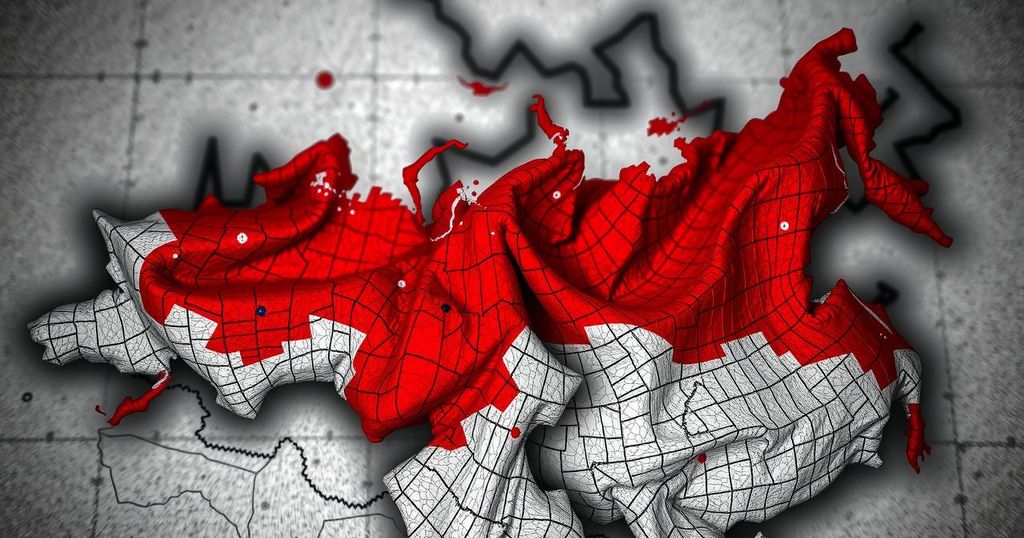The Collapse of Assad: Implications for Russian Prestige and Power

The collapse of Bashar al-Assad’s regime has dealt a serious blow to Russia’s prestige, as the Kremlin’s military support falters. Assad has reportedly fled to Moscow for asylum due to the rapid deterioration of his authority in Syria. This upheaval raises pivotal questions regarding Russia’s strategic military bases and reflects on the country’s global standing in light of its failed Syrian intervention.
The recent turmoil in Syria has led to the unexpected collapse of Bashar al-Assad’s regime, which for years relied on Russian military support. In the wake of these events, reports indicate that Assad has fled to Moscow and received asylum from Russia on humanitarian grounds, highlighting a significant shift in the dynamics of the Syrian conflict. The Kremlin has expressed concern about the rapid developments, which showcase its waning influence over the situation in Syria.
For nearly a decade, Russia’s military intervention in Syria was designed to bolster Assad’s presidency, asserting Russia’s position as a formidable global power. This initiative was seen as a counterbalance to Western dominance, marking a critical shift for Vladimir Putin’s foreign policy. However, the fall of Assad’s government represents a significant embarrassment for Moscow, as its strategic endeavor appears to be crumbling unexpectedly.
Previously, Russia had basked in the successful implementation of its military campaign in Syria, boasting of its accomplishments with pride. This included the establishment of military bases at Hmeimim and Tartous, which were strategically important for projecting power in the eastern Mediterranean and supporting subsequent operations in Africa. With the regime’s collapse, critical questions arise regarding the future of these bases and how Russia will secure its interests in the region.
Amidst the chaos, Russian state media has attempted to shift blame for the collapse onto the Syrian army, suggesting that their lackluster performance caused the swift loss of territory. This tactic aims to deflect criticism from the Kremlin while reinforcing the narrative that Russia had sought peace in Syria despite the ongoing violence. Furthermore, state broadcasts emphasize that Russia’s priorities are shifting, particularly toward securing its interests in the ongoing conflict in Ukraine, subtly urging citizens to focus on domestic concerns rather than events in Syria.
In summary, the unforeseen toppling of Bashar al-Assad marks a significant blow to Russian prestige on the world stage, intertwining deeper issues regarding Moscow’s foreign policy and security considerations. As the situation in Syria remains fluid, the Kremlin’s next steps will be crucial in addressing this substantial setback and recalibrating its approach in the region.
The Syrian civil war has persisted for over a decade, with Bashar al-Assad’s regime facing opposition from various rebel factions. Russia intervened militarily in 2015, significantly impacting the conflict in favor of Assad, but recent developments reveal the fragility of that support. The Kremlin’s investment in Assad was not only about maintaining an ally in the Middle East but also about projecting its power globally, particularly against Western interests. The fall of Assad presents both a domestic challenge for the Kremlin and questions about its military presence and geopolitical strategy in Syria.
The fall of Bashar al-Assad’s regime signifies a profound shift in the dynamics of the Syrian conflict, culminating in a substantial challenge to Russian policy and prestige. The Kremlin’s inability to stabilize the situation reflects deeper vulnerabilities within its foreign interventions. As Russia grapples with both the consequences of its failed Syrian strategy and the challenges posed by its ongoing conflict in Ukraine, Moscow’s future actions will be critical in redefining its regional influence and ensuring the security of its interests.
Original Source: www.bbc.co.uk







